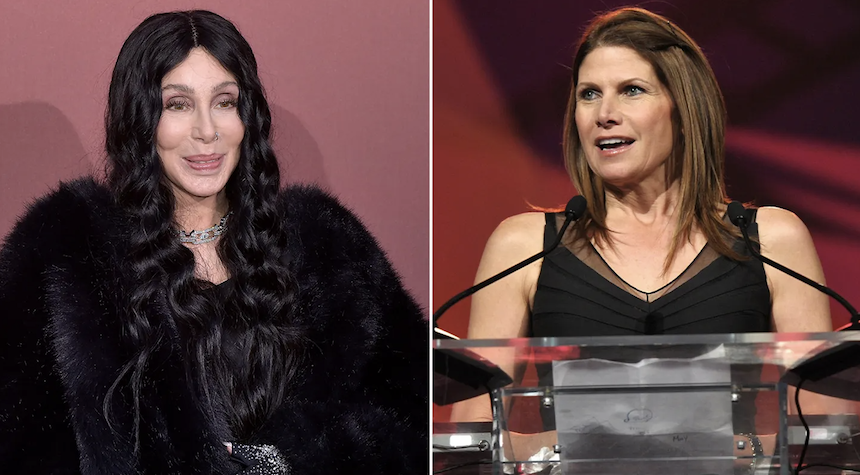Cher won a court battle against Mary Bono regarding royalties Cher earned from her work with the late Sonny Bono.
According to documents obtained by the U.S. District Court Judge John Kronstadt of the Central District of California, Cher should have been entitled to just over $418,000 as royalties on June 30, 2022.
“As to the resulting damages, the parties agree that Wixen distributed at least $187,000 of Composition Royalties to Sonny’s heirs that, but for the invalid termination, would have been distributed to [Cher]; of this amount, at least $93,500 was paid to [Mary]. The parties also do not dispute that, as of June 30, 2022, Wixen [Music Publishing] held $418,156.82 in Composition Royalties that would have been distributed to [Cher],” the judge wrote.
Cher and Mary Bono’s representatives did not immediately reply to a request for comment.
Cher sued Mary Bono, and other people involved with the estate for $1 million in 2021. She claimed breach of contract.

Cher claimed that Mary had tried to change the provisions that entitled her to 50% of the musical compositions and royalties from hits such as “I Got You Babe”, “The Beat Goes On” and other songs.
The documents at the time stated that Sonny Cher had signed a marriage settlement agreement in 1978 after their separation. Cher says that the ex-couple “agreed on an equal division of community property” and these were “irrevocably allocated” to Cher.
According to the lawsuit “in or around 2016, the Heirs or a majority, with the help or participation of Wixen (Music Publishing), issued a termination notice to various music publishing companies or other companies, to whom Sonny granted a license or transfer of renewal copyrights or rights under these, for the Musical Compositions. The Heirs’ notice stated various termination dates ranging from 2018 to 2026.
Mary, trustee of the Bono Collection Trust exercised “termination rights”, which are a part of the Copyright Act, in 2016. This allows songwriters, or their heirs, to “recapture rights that were previously transferred to third parties”, after 35 years.

Cher was allegedly terminated “without her knowledge or participation.”
In Judge Kronstadt’s ruling on Wednesday, he stated, “In reviewing similar agreements which assign royalty rights instead of underlying copyrights the Circuit Courts have found that a royalties right is distinct from copyright grant,” as Mary had cited.
Cher’s claim for breach of contract has also been partially granted.
Mary’s counterclaim for declaratory relief regarding “Cher’s rights and obligations concerning the selection of an estate administrator” was partially granted. This means that Mary can request to have the estate administered by “an entity controlled and owned by Sonny’s descendants as the royalty administrator,” while Cher can “make reasonable opposition to the terms of such an agreement, including whether the fee is reasonable.”
The documents did specify when Cher would be paid for her unpaid earnings.


